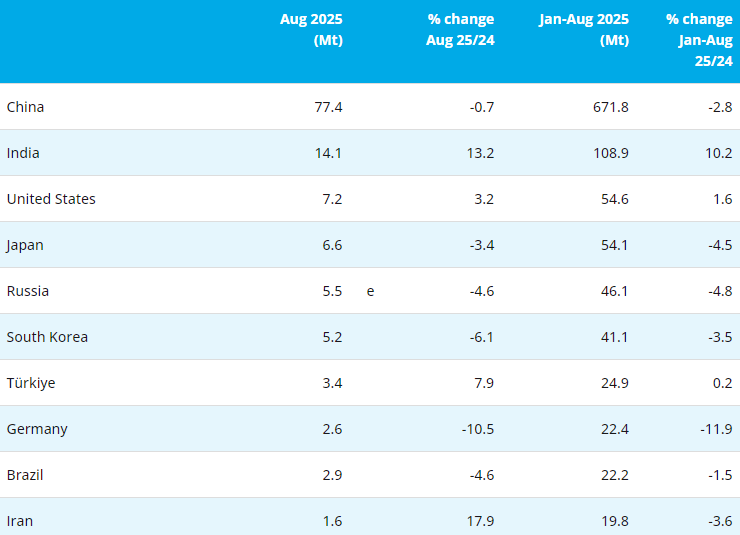In view of national economic performance in the first four months of 2009, China's industry growth rate witnesses a relatively lower and more stable growth with an excessive growth having been initially curbed in some regions and some industries and the country's industry as a whole scoring better performance toward a positive direction.
This statement is contained in an official report prepared jointly by the Chinese Ministry of Industry and Information Technology (MIIT) and the Institute of Industrial Economics under the Chinese Academy of Social Sciences (CASS), which has been released recently.
From January to April this year, the industrial output, or value-added output of China's major industrial firms or those enterprises with an annual core revenue of more than 5 million yuan, rose 5.5 percent. The national industrial output value increased by 7.3 percent in April from a year earlier, and the figure was down from 8.3 percent in March, and so the country's industrial economy showed signs of better-than-expected positive changes in the first four months of the year.
In term of an overall economic performance, light industry has been drawn up chiefly by strong consumption demands and its production is relatively stable, whereas heavy industry has improved its performance because of industry retooling and restructuring over half a year and a year-on-year drop in purchasing prices of raw material, fuel and electric power.
In April, industrial output growth in 21 provinces, municipalities and autonomous regions across China showed a positive growth to varying degrees over the first quarter of the year. East, central and western China reported a value-added growth rate of 6.7 percent, 5.5 percent and 12.7 percent respectively in April, and the value-added output growth in east China went up three percentage points year-on-year. The relatively-fast resumed industrial production in the east China region, which is well based and has a big scale, would lay a sound foundation for the smooth resurgence of national industry growth rate.
Since the beginning of this year, the effect of China's related policies on the expansion of domestic demand has evidenced gradually, and some industrial sectors indicate apparent signs of warming-up in the course of retooling.
China's GDP grew faster in the first half of 2008, and economic made a downturn statistically in the later half of the year. And the growth rate in the latter half of 2009 could be much "more optimistic", predicted Jin Bei, a prestigious researcher and the head of the CASS Institute of Industry Economy. The country's industry would be on a track for a growth above 10 percent in the latter half of the year as a result of relevant policy measures put in place to "assure economic growth and expand domestic demands," Jin acknowledged.
In spite of some positive changes in China's economic performance, noted Zhu Hongren, chief engineer at the MIIT, and there are still some factors negatively impacting the country's industrial performance, and the basis for industry to pick up is not so strong because of ensuing factors:
First and foremost, the current global financial crisis is still spreading and penetrating with an exterior demand dwindling due to an economic decline worldwide. Second, there is overproduction in some industry sectors, which cannot be solved within a short period of time. Third, a management environment for some industrial firms has to be further renovated or improved.
Finally, an inadequate input make its impact felt on the investment of some enterprises. In the first quarter of the year, twenty-one industrial sectors out of the 39 major industries nationwide reported poorer economic returns than during the first two months of the year. This grim situation would not only reduce the capacity of these enterprises for absorbing investment but negatively affect the flow of social capital into the realm of industries.
While increasing or expanding investment, more assiduous efforts must be made to help create a more relaxed policy environment, so as to attract more non-government investment, said Jin Bei, head of the CASS' Institute of Industrial Economy.
Meanwhile, Jin added, more heed and much closer attention are to be paid to the management environment of enterprises, so that firms of all descriptions are eligible and entitled to equal market entry conditions and fair market competition environment. –People’s Daily Online
Copyright © 2013 Ferro-Alloys.Com. All Rights Reserved. Without permission, any unit and individual shall not copy or reprint!
- [Editor:editor]



 Save
Save Print
Print Daily News
Daily News Research
Research Magazine
Magazine Company Database
Company Database Customized Database
Customized Database Conferences
Conferences Advertisement
Advertisement Trade
Trade













Tell Us What You Think